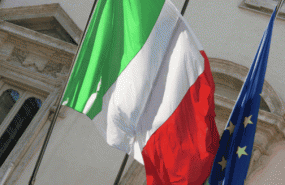
The Ibex has registered a session that has gone from more to less. The selective, finally, has fallen 0.9% to 8,811 points, although it opened and has been half the session in a good position. Banks have been the main cause of the fall, as they have turned around halfway through the day.
- 11.435,700
- -0,28%
However, the protagonist has been DIA, which has fallen by 24.5%, and has marked new historical lows at the close at 0.6644 euros, but also intraday, at 0.62 euros. The company has presented its review of the 2017 accounts. DIA has reduced its net profit for fiscal year 2017 from 110 million euros to 90 million euros after an adjustment of 20 million euros.
DAY dragged a bad year, since it drops almost 83% in the accumulated. But these latest declines began on Monday of last week when the company announced that it lowered its profit forecasts and suspended its dividend.
However, it has been the banks that have ballasted the selective Spanish. Banco Sabadell has fallen 5.36% and Bankia, something almost 5%. The bank has been attentive to the Supreme Court, which has announced that on November 5 it will communicate its decision on who pays the taxes of the mortgage firm.
The rest of the banks have not registered a good session Caixabank has dropped almost 4% and BBVA, just over 2%. On the other hand, Bankinter has fallen by 1.4% and Banco Santander has dropped by 0.6%.
For its part, Telefonica has fallen 0.46% to 6.94 euros, despite having received an improvement in the target price by Barclays to 9.1 euros, which gives it a potential of 30%. On the other hand, in the rise of CIE Automotive has advanced almost 3% to 23.16 euros. While Viscofán has risen 1.37% and IAG, 0.51%.
In the Continuous Market, OHL has fallen by 16% to 1.02 euros, although it has lost the euro per share. The construction company accumulates a bad month in October.
This will be a very interesting and intense week for the global stock markets, with a multitude of references. Italy is the main protagonist on Monday after the cut in rating that it recieved from Moody's on Friday, but also will results kicking off (they present Iberdrola, Bankinter, Sabadell or CaixaBank, among others) and the European Central Bank's speech on (ECB ) Thursday.
OTHER MARKETS
The rest of the stock exchanges of the Old Continent have closed in negative. The London FTSE 100 has fallen slightly, by 0.02%. For its part, the CAC 40 in France has dropped 0.5% and the German DAX 30 0.2%. For its part, Wall Street is trading with a mixed sign pending business results.
On the other hand, on a macroeconomic level, Italy is the main protagonist. The Government of Italy has acknowledged that its fiscal policy approach for 2019 is not in line with the rules of the Stability and Growth Pact, although it has expressed its commitment not to widen the structural deficit in the coming years, ensuring that if deficit and debt readings will not evolve as planned, it will adopt "all necessary measures".
As for the European Central Bank, it is speculated that Mario Draghi will use Italy as an excuse to start hinting that there may not be an increase in rates in 2019. Investors will be very aware of everything the Italian has to say.
TECHNICAL ANALYSIS
José María Rodríguez, technical analyst at Bolsamanía, points out that the candle with which we have started the week, after rising above 1% as soon as the market opens, is not exactly a sign of strength. Rather the complete opposite. The Ibex 35 closes at the level of 8,800 points. "We need this rebound with force immediately if we do not want to start seeing ghosts again, although as is the financial sector of our country there are no reasons of any kind to maintain hope, at least as far as refers to the very short term, "explains the analyst.
To end up drilling the lows of this Friday (8,768) we can not rule out a fall to the next support, at 8,500 points. Likewise, "if we look at our European neighbors, they all seem to want to test again the minimums of last week and if they drill, more of the same, another corrective stretch in trend," he adds.
If we look at the European banking index (SX7E) it continues to build impeccable maximum and minimum decreases and accumulates a fall from the annual highs that were reached in January of 31%. Which means that, let's not deceive ourselves, the weakness of the banking sector comes with all the bank stogether. The main problem is that it has a greater weight in our index than in others. "And of course this is for better or worse", concludes José María Rodríguez.



